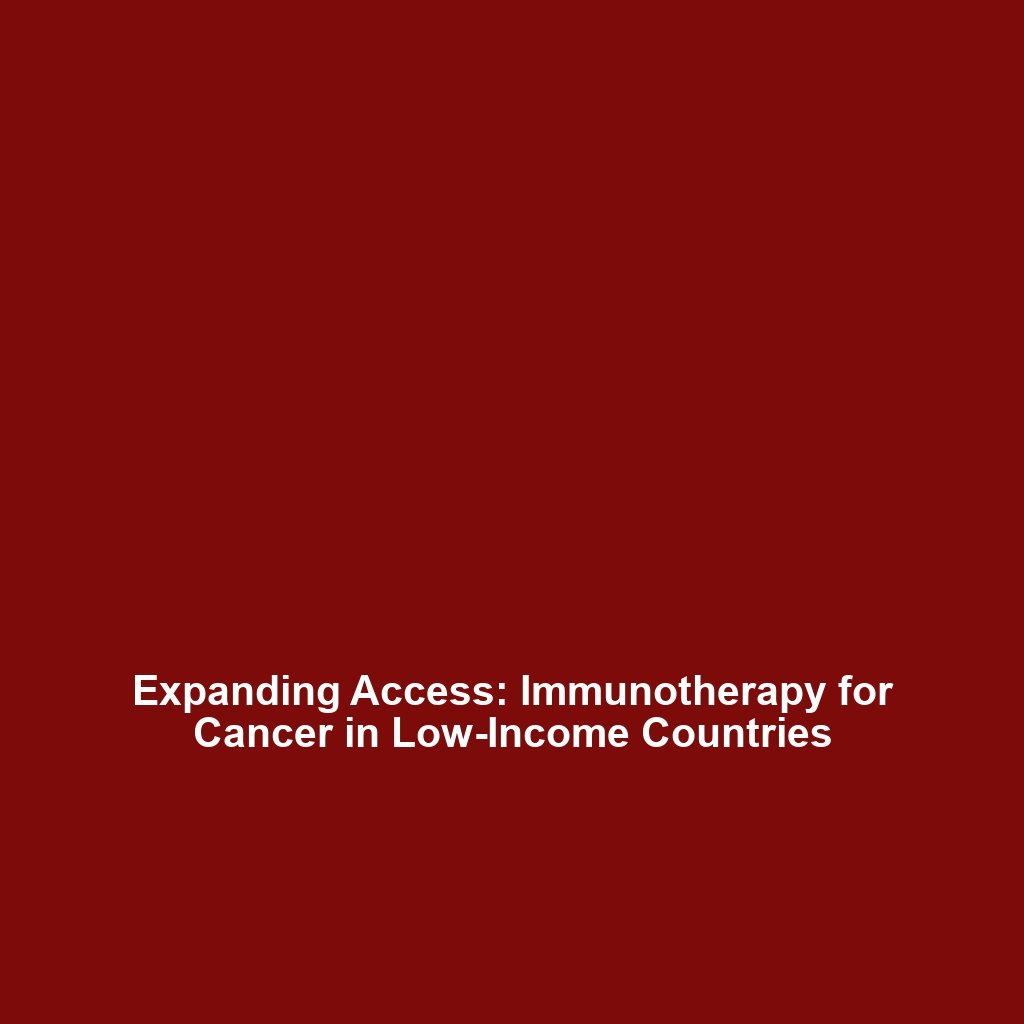<>
Efforts to Make Immunotherapies Available in Low- and Middle-Income Countries
Introduction
Efforts to make immunotherapies available in low- and middle-income countries (LMICs) represent a significant advancement in the field of healthcare, particularly in the context of Immunotherapy & Cancer. With the rising prevalence of cancer worldwide, it is crucial to expand access to effective treatments like immunotherapy. Current statistics reveal that cancer incidence is increasing in LMICs, but access to innovative therapies is vastly limited. Bridging this gap is vital not only for improving survival rates but also for ensuring equity in cancer care globally.
Key Concepts
Immunotherapy utilizes the body’s immune system to fight cancer, making it a revolutionary approach within Immunotherapy & Cancer. Here are some key concepts related to this effort:
- Types of Immunotherapies: Various immunotherapy modalities exist, including monoclonal antibodies, immune checkpoint inhibitors, and cell-based therapies.
- Healthcare Systems: LMICs often face systemic healthcare challenges, including resource scarcity and a lack of infrastructure to support advanced cancer treatments.
- Collaborative Efforts: Partnerships between governments, NGOs, and pharmaceutical companies are pivotal to improving access to these therapies.
Applications and Real-World Uses
Understanding how efforts to make immunotherapies available in low- and middle-income countries are applied can illuminate their potential effects within Immunotherapy & Cancer. Key applications include:
- Public Health Initiatives: Programs aimed at educating healthcare providers and patients about the benefits of immunotherapy.
- Affordable Access Models: Development of tiered pricing structures that allow LMICs access to life-saving treatments.
- Clinical Trials: Engagement of LMICs in multinational clinical trials to gather data and enhance treatment protocols.
Current Challenges
Despite the progress made, challenges of making immunotherapies available in low- and middle-income countries persist:
- Limited financial resources and high costs of therapies.
- Inadequate healthcare infrastructure and training for the healthcare workforce.
- Cultural attitudes towards cancer and advanced medical treatments.
- Regulatory hurdles that delay the approval and distribution of therapies.
Future Research and Innovations
The future of Efforts to make immunotherapies available in low- and middle-income countries looks promising, with exciting developments on the horizon:
- Next-Gen Biologics: Research into more affordable, locally produced immunotherapies.
- Telehealth Innovations: Utilizing technology to provide remote consultations and treatment monitoring.
- Global Collaborations: Increased partnerships and funding opportunities aimed at enhancing treatment access in LMICs.
Conclusion
In summary, the efforts to make immunotherapies available in low- and middle-income countries are essential for advancing cancer care in the realm of Immunotherapy & Cancer. Addressing the challenges and fostering innovative solutions will not only save lives but also contribute to a more equitable healthcare landscape. For more information on related topics, consider reading about affordable cancer treatments and global health initiatives to deepen your understanding of the evolving landscape of cancer care.
